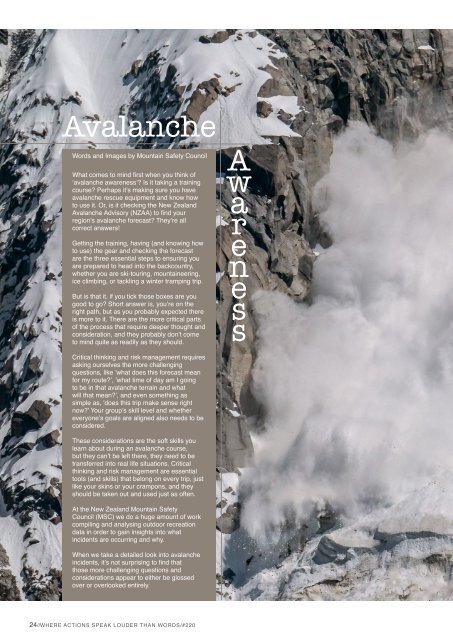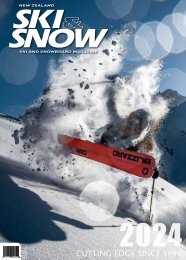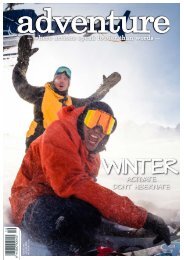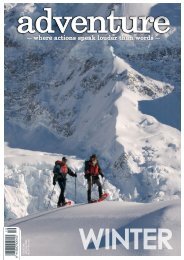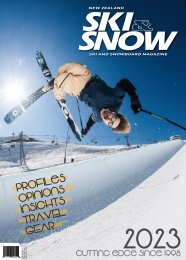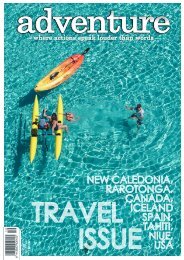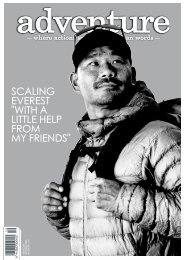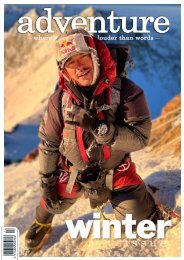Adventure Magazine Issue 220
Issue 220: June/July Winter 2020
Issue 220: June/July
Winter 2020
Create successful ePaper yourself
Turn your PDF publications into a flip-book with our unique Google optimized e-Paper software.
Avalanche<br />
Words and Images by Mountain Safety Council<br />
What comes to mind first when you think of<br />
‘avalanche awareness’? Is it taking a training<br />
course? Perhaps it’s making sure you have<br />
avalanche rescue equipment and know how<br />
to use it. Or, is it checking the New Zealand<br />
Avalanche Advisory (NZAA) to find your<br />
region’s avalanche forecast? They’re all<br />
correct answers!<br />
A<br />
w areness<br />
Getting the training, having (and knowing how<br />
to use) the gear and checking the forecast<br />
are the three essential steps to ensuring you<br />
are prepared to head into the backcountry,<br />
whether you are ski-touring, mountaineering,<br />
ice climbing, or tackling a winter tramping trip.<br />
But is that it, if you tick those boxes are you<br />
good to go? Short answer is, you’re on the<br />
right path, but as you probably expected there<br />
is more to it. There are the more critical parts<br />
of the process that require deeper thought and<br />
consideration, and they probably don’t come<br />
to mind quite as readily as they should.<br />
Critical thinking and risk management requires<br />
asking ourselves the more challenging<br />
questions, like ’what does this forecast mean<br />
for my route?’, ’what time of day am I going<br />
to be in that avalanche terrain and what<br />
will that mean?’, and even something as<br />
simple as, ‘does this trip make sense right<br />
now?’ Your group’s skill level and whether<br />
everyone’s goals are aligned also needs to be<br />
considered.<br />
These considerations are the soft skills you<br />
learn about during an avalanche course,<br />
but they can’t be left there, they need to be<br />
transferred into real life situations. Critical<br />
thinking and risk management are essential<br />
tools (and skills) that belong on every trip, just<br />
like your skins or your crampons, and they<br />
should be taken out and used just as often.<br />
At the New Zealand Mountain Safety<br />
Council (MSC) we do a huge amount of work<br />
compiling and analysing outdoor recreation<br />
data in order to gain insights into what<br />
incidents are occurring and why.<br />
When we take a detailed look into avalanche<br />
incidents, it’s not surprising to find that<br />
those more challenging questions and<br />
considerations appear to either be glossed<br />
over or overlooked entirely.<br />
24//WHERE ACTIONS SPEAK LOUDER THAN WORDS/#<strong>220</strong> ADVENTUREMAGAZINE.CO.NZ 25


